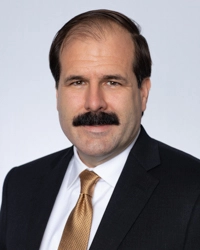When an applicant dies during a worker’s compensation claim, insurers need to be aware of the requirements for resolving the case. The first misconception is that applicant’s death ends a case. Without a living injured worker, why should benefits be paid? The answer is not as clear as it seems.
Labor Code §4700 states that the death of an injured employee does not affect defendant’s liability for industrial injuries. It also provides that “neither temporary nor permanent disability payments shall be made for any period of time subsequent to the death of the employee.” Thus, the death of an applicant stops payment of indemnity to an applicant. Instead, any “accrued and unpaid” compensation must be paid to an applicant’s dependents. If there are no dependents, they are paid to the personal representative of the deceased applicant, their heirs, or other persons entitled to these benefits. This payment is made without administration (e.g., without the need for probate).
An applicant’s death terminates temporary and permanent disability payments, and, of course, medical treatment. However, the insurer must pay “accrued and unpaid” compensation to dependents or heirs. Importantly, the death of an applicant does not deprive the WCAB of jurisdiction to determine what benefits, if any, have accrued and who should receive payment. Accrued and unpaid benefits are benefits, usually permanent or temporary disability, that should have been paid to applicant while living. These benefits must be accrued and unpaid, meaning that applicant has been awarded benefits, but they were not paid. For example, if an applicant is awarded 100 weeks of PD benefits, but dies after 50 weeks have been paid, no further payments are accrued. However, if an applicant is awarded 100 weeks of PD and 60 weeks have accrued, but the applicant dies after only 50 weeks have been paid, 10 weeks are due to the dependents. The remaining 40 weeks are not due.
In Price v. WCAB (1992) 10 Cal.App.4th 959, applicant died before the Stipulations with Request for Award were approved and before there was an award. The Stipulations provided for 70% permanent disability, payable 4 weeks after vocational rehabilitation ended. However, because of overpayments and advances, the court held that no indemnity was accrued as of applicant’s death.
Similarly, if an applicant who is receiving temporary disability dies, only temporary disability that is accrued (e.g., due and payable) at the time of death may be awarded to the dependents. This may occur, for example, when the parties stipulate to an award of unpaid temporary disability. Absent such a situation, temporary disability ends upon death.
The situation becomes more challenging when a claim is alleged, but applicant dies before AOE/COE or nature and extent of permanent disability are established. If the employee dies before his condition becomes permanent and stationary, permanent impairment may be rated after death to determine whether any payments have accrued and therefore are due to the employee’s dependents. (Subsequent Injury Fund v. Industrial Acc. Com. (Monteverde) (1957) 151 Cal. App. 2d 147.) The WCAB still retains jurisdiction to determine all contested matters.
The death of an applicant does not automatically dismiss a pending workers compensation case.
But how is a deceased applicant evaluated? A QME could evaluate the most recent treatment reports and extrapolate a “possible” rating. However, if applicant was not permanent and stationary before his death, there may be no accrued benefits. If applicant was permanent and stationary before his death, the accrued benefits would be indemnity owed to the date of his death, which is then payable to applicant’s beneficiaries. In Alley v. WCAB (Grans) (2002) the WCAB held that an uncashed check for a Compromise and Release was payable to applicant’s dependents, it represented accrued benefits.
Finally, any accrued benefits due at the time of death may serve as a pool from which applicant attorney fees may be drawn. If there are no accrued benefits (for example, when all indemnity has been paid to applicant), it is proper to deny an attorney fee. If an applicant dies before reaching maximum medical improvement, their attorney may attempt to establish a retroactive permanent and stationary date in order to create accrued benefits from which they may draw a fee.
When an applicant dies during the pendency of a claim, the insurer should immediately recognize that this does not terminate the case and claim. Instead, the insurer should calculate any accrued benefits, defending against claims of attorney’s fees, and rebutting retroactive permanent and stationary dates. Insurers are advised to treat non-industrial deaths during the pendency of litigation seriously, as the death of an applicant does not always mean the termination of the case.
Michael P. Burns is a Partner at Bradford & Barthel’s San Jose location. Before joining B&B, Mr. Burns practiced civil litigation and employment law. He currently serves as an arbitrator for the Santa Clara County Bar Association’s Fee Dispute Resolution Program. Since joining B&B, his primary areas of practice include workers’ compensation and subrogation. Mr. Burns can be reached at mburns@bradfordbarthel.com or (408) 392-8202.>
Viewing this website does not form an attorney/client relationship between you and Bradford & Barthel, LLP or any of its attorneys. This website is for informational purposes only and does not contain legal advice. Please do not act or refrain from acting based on anything you read on this site. This document is not a substitute for legal advice and may not address every factual scenario. If you have a legal question, we encourage you to contact your favorite Bradford & Barthel, LLP attorney to discuss the legal issues applicable to your unique case. No website is entirely secure, so please be cautious with information provided through the contact form or email. Do not assume confidentiality exists in anything you send through this website or email, until an attorney/client relationship is formed.



